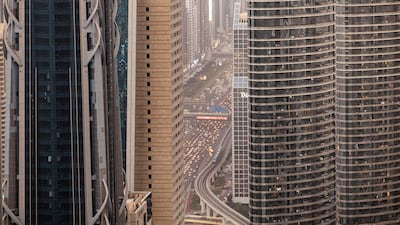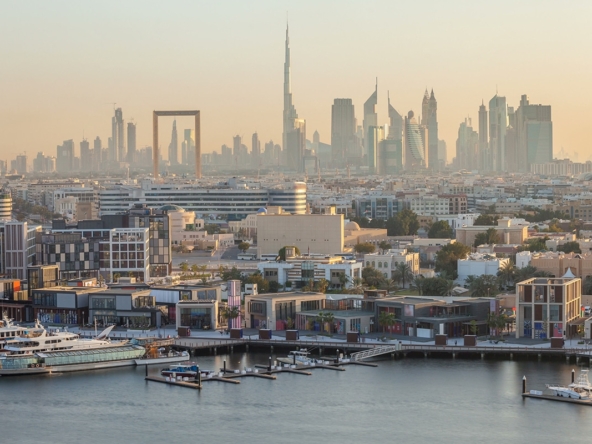System aims to drive transparency and reduce disputes between landlords and tenants.
Dubai Introduces New Rental Index with Building Rating System
Dubai’s latest rental index introduces a rating system for individual buildings, encouraging landlords to renovate or upgrade their properties to justify rent increases.
The Dubai Land Department (DLD) unveiled this innovative index, which uses a smart classification system to rate residential buildings on a scale of one to five stars. This rating is based on over 60 criteria, such as location, sustainability, security, building age, and available amenities.
Majid Al Marri, CEO of Real Estate Registration at the DLD, explained: “The building classification carries specific weightage. For instance, if a landlord wishes to raise their building’s rating from three stars to four or five, they must make improvements to meet the necessary standards.”
He further elaborated, “This initiative motivates property owners to enhance building quality while ensuring compliance with safety and security regulations, as well as periodic maintenance requirements set by civil defense, Dubai police, and other authorities.”
This new approach aims to reduce tenant-landlord disputes and support Dubai’s real estate sector with increased leasing activity and fresh investment. “It fosters a sustainable, balanced environment that benefits tenants and landlords alike,” Mr. Al Marri added.
Unlike the previous index, which was updated annually and based on zones, the new system evaluates individual buildings using AI technology. It provides real-time updates and includes both freehold and non-freehold areas across Dubai.
Initially applied to residential buildings, the DLD plans to expand the system to commercial, retail, and industrial properties in the future.
In 2024, Dubai recorded an 8% annual rise in registered leases, surpassing 900,000, indicating growing confidence in the emirate’s real estate market. Officials predict the new index will reduce disputes between landlords and tenants by over 20%.
“Our goal is to create a balanced framework that benefits tenants, landlords, and the broader market,” Mr. Al Marri stated. He clarified that rental increases would still follow the existing Decree No. 34 of 2013, ensuring stability in the percentage rates.
The new system also allows property owners to request building evaluations at any time to improve their ratings. Tenants can be notified in advance of any financial adjustments linked to these changes.
The previous index mainly offered a general value for properties based on area averages over one or two years. This led to frequent disputes amid soaring demand and Dubai’s population growth.
The rising demand has driven rents in Dubai up for 15 consecutive quarters, with a year-on-year increase of 18% in Q3 2024, according to Cushman and Wakefield Core. Apartment rents rose by 19%, while villa rents climbed 13%. Lease renewals also saw a 16% increase during this period.

With housing remaining a key contributor to Dubai’s inflation metrics, average annual rents surged by 20.8% in November 2024, according to Emirates NBD.
Matthew Green, CBRE MENA’s head of research, praised the new index as a significant addition to Dubai’s maturing real estate market. “It brings greater transparency, offering detailed data for landlords and tenants and reflecting individual property upgrades and renovations,” he said.
Mario Volpi, head of brokerage at Novvi Properties, highlighted the benefits of this balanced and transparent system, which incorporates both old and new rental agreements. “Currently, tenants may face challenges in a landlord-driven market. However, this will shift once we return to a tenant-friendly market,” Volpi explained.
Farooq Syed, CEO of Springfield Properties, described the index as a “transformative milestone” that ensures rental values align with property quality. “This approach promotes tenant satisfaction and encourages landlords to enhance their properties,” he said.
Harris Hiscoe, head of leasing at Espace Real Estate, called the index a “game-changer” for its fairness and transparency. “Tenants in older buildings won’t pay the same as those in brand-new developments. Meanwhile, landlords who’ve invested in upgrades will see their efforts rewarded,” he added.





 Online | Privacy policy
Online | Privacy policy